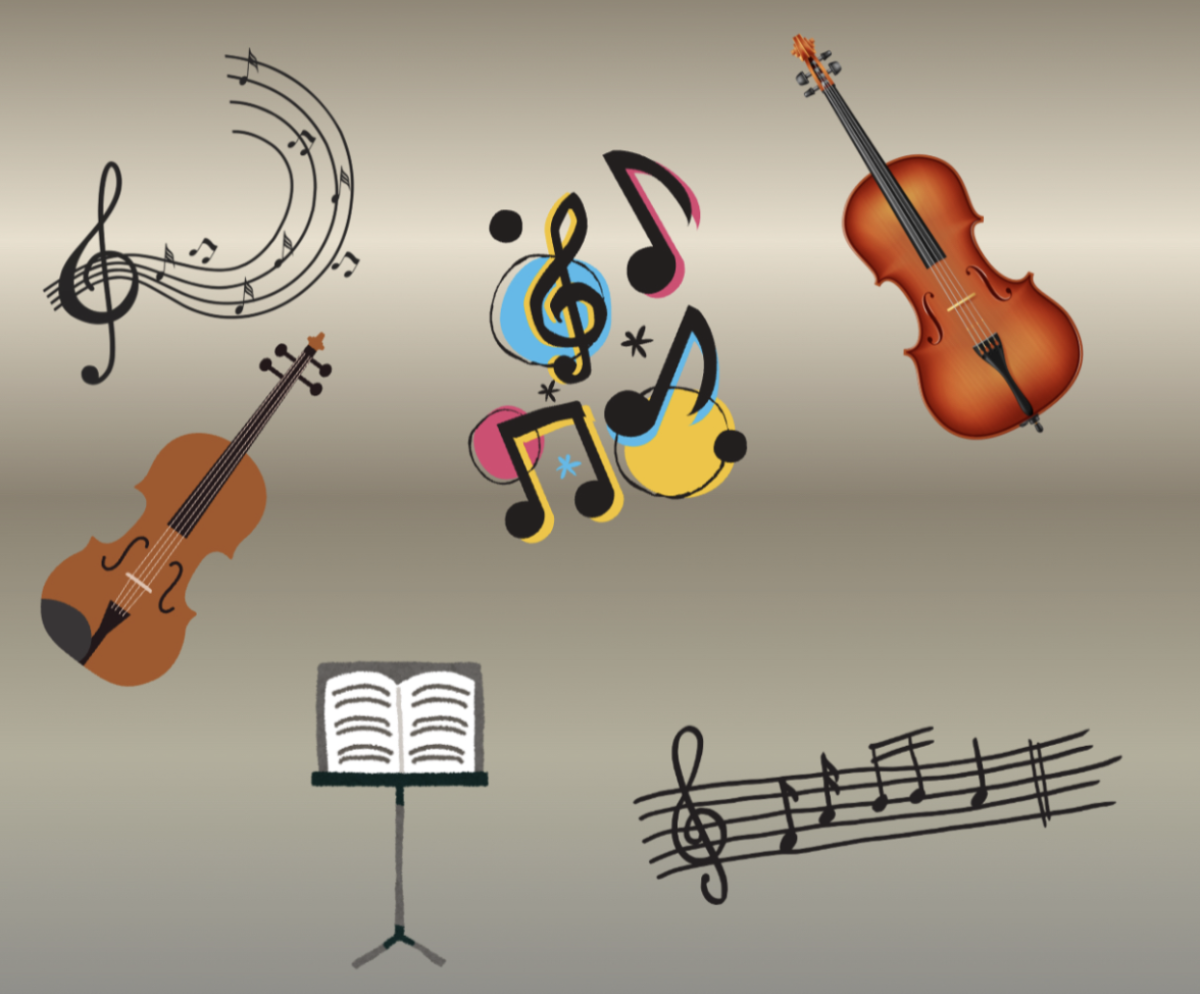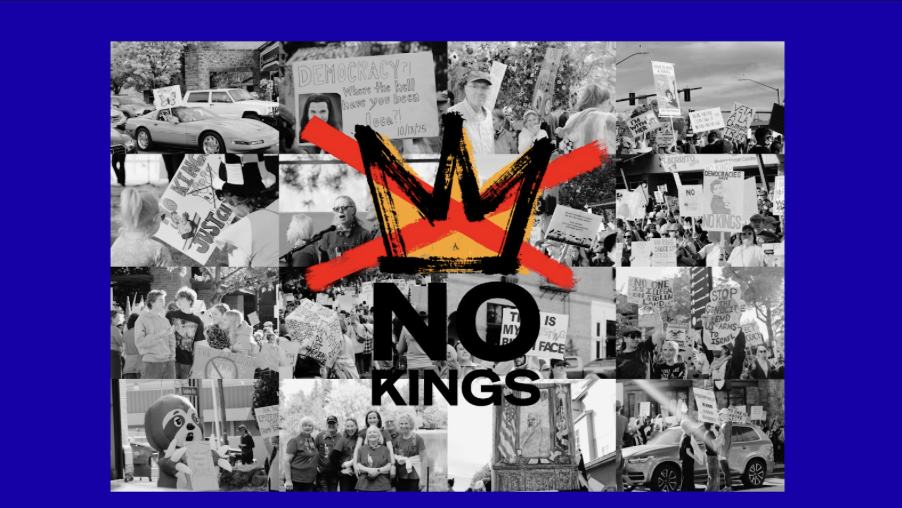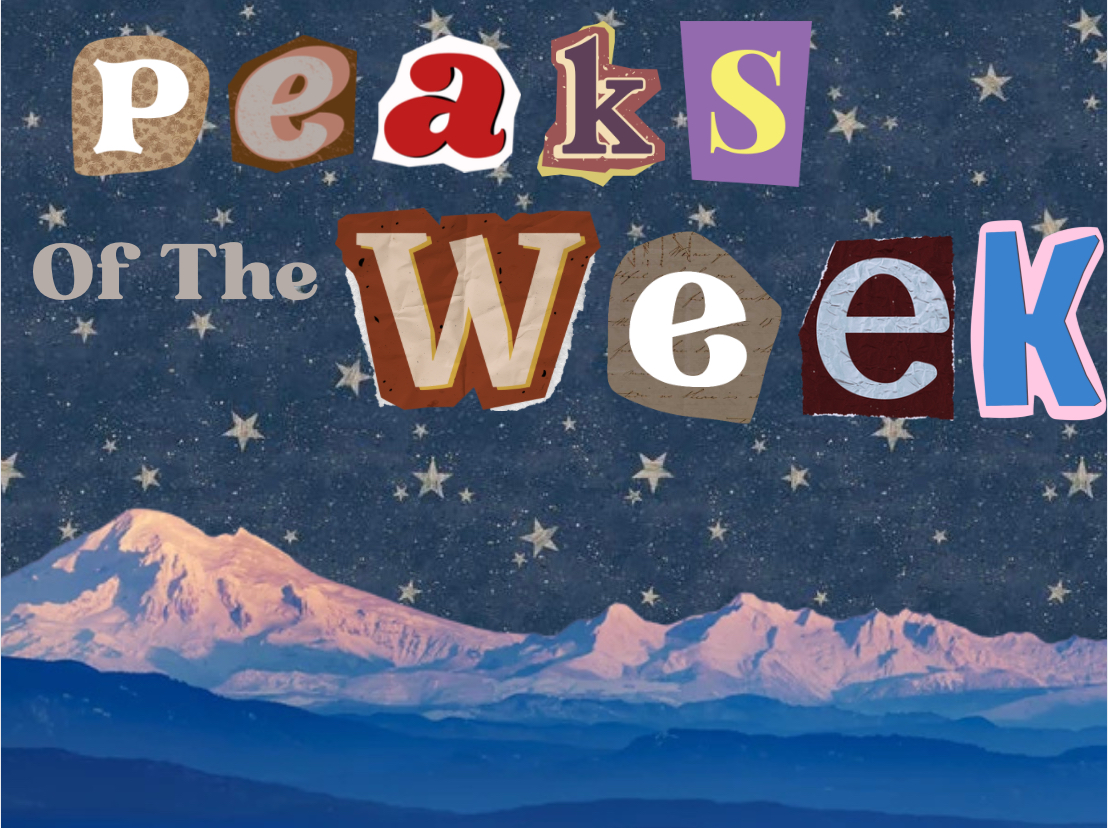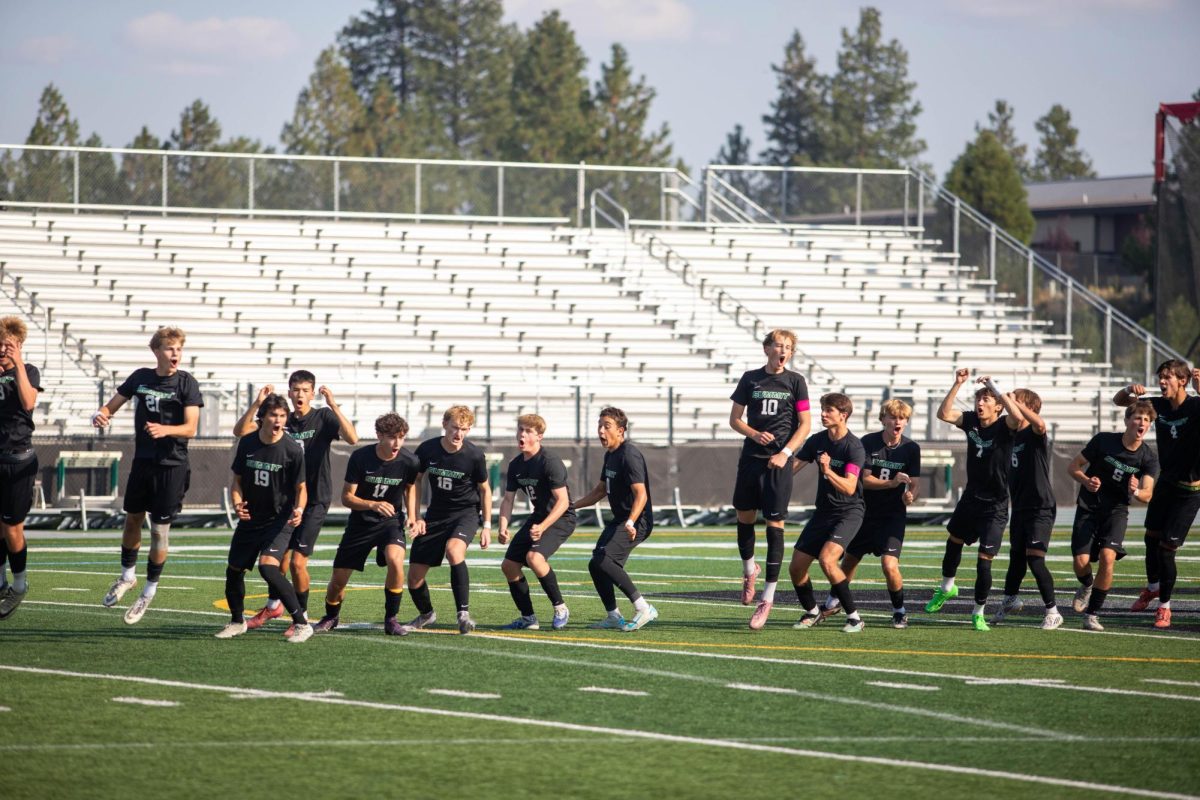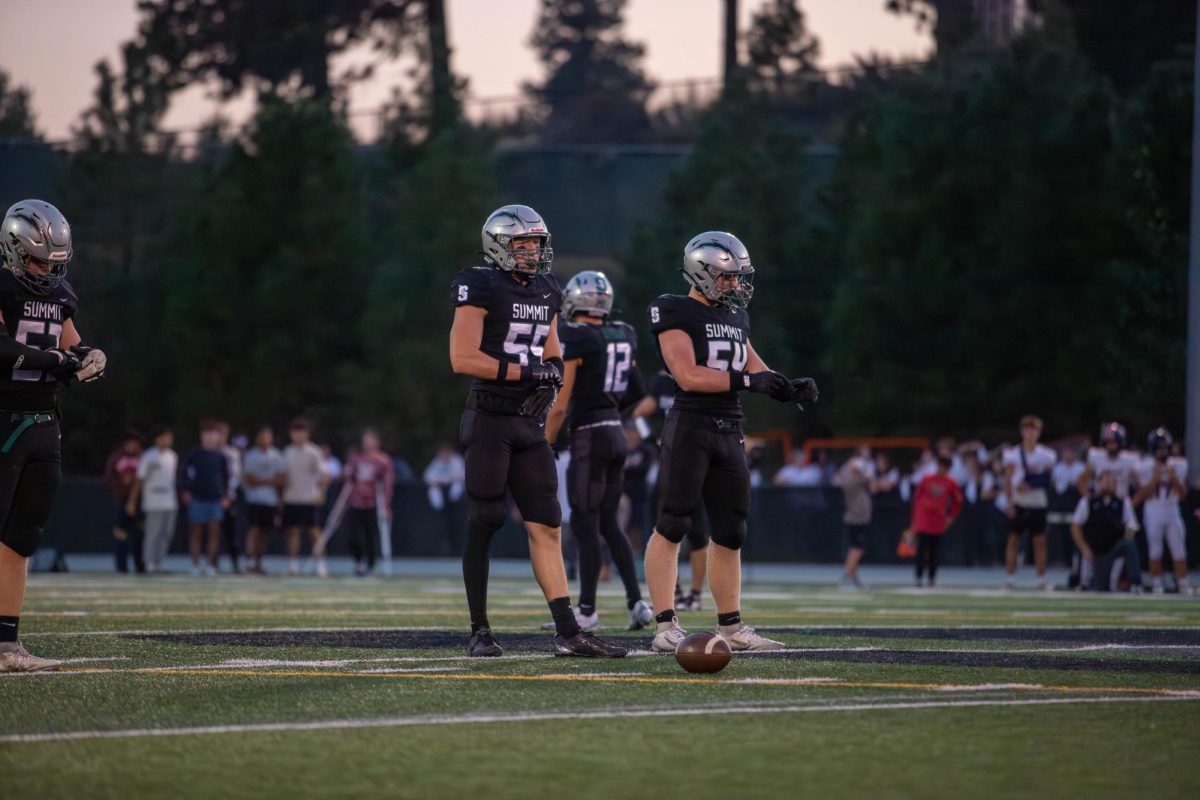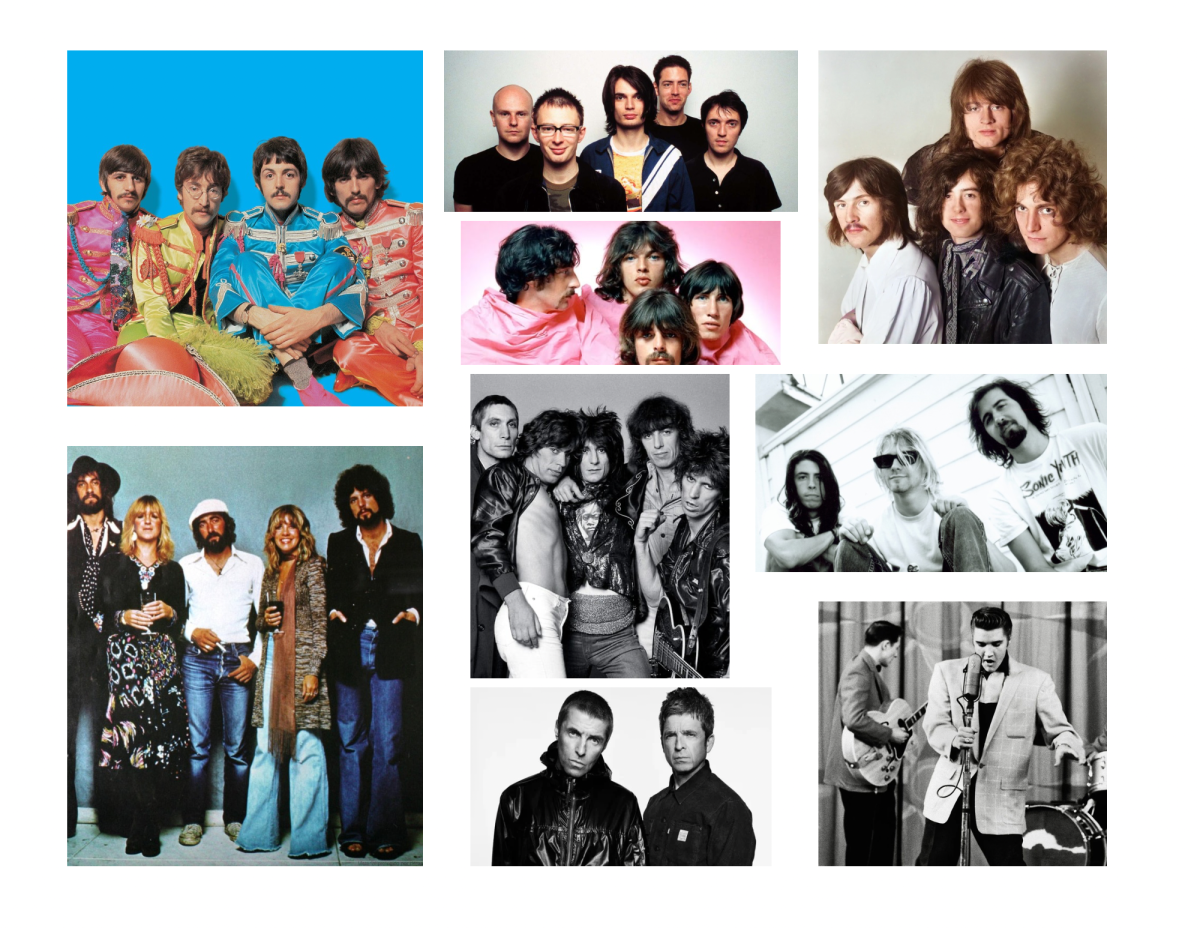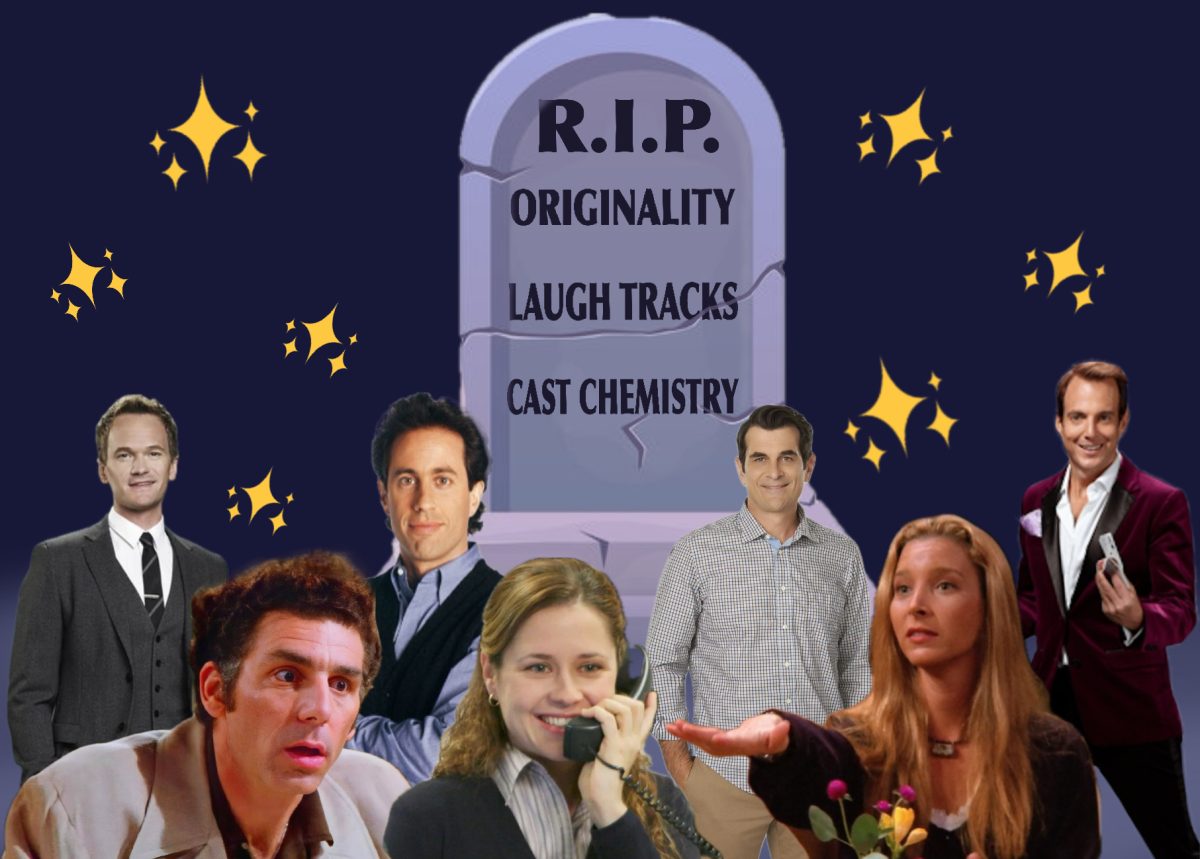Rock music, originating in the late 1940s and early 1950s, is an extensive genre with over 100 different sub-genres ranging from “Hamburger Schule” to “New York Hardcore.” From albums like Fleetwood Mac’s “Rumours,” a soft rock record with beautiful harmonies and acoustic guitar to accompany the tasteful lyrics, to Nirvana’s “Nevermind,” featuring Kurt Cobain’s distressed vocals and heavily distorted guitars that will most likely give you permanent hearing loss, rock has a little something for everyone.
Rock wasn’t always as intense as Nirvana or as melodic as Fleetwood Mac. Artists like Elvis Presley, Chuck Berry and Sister Rosetta Tharpe pioneered early forms of the rock n’ roll genre. After listening to these artists, it’s obvious that compared to what we hear today it’s all pretty mild. But back in the ‘40s and ‘50s, this music was as loud and rowdy as it came. Rock had its renaissance from the 1960s to the 1990s, the time period when the genre experienced the most growth.
This may all seem like a lot–because it is. Luckily, I’ve crafted your rock n’ roll training wheels. They’re here to get you started, and after you complete your basic training, you can go your own way and find what really suits you in this wildly extensive world of rock.
“Led Zeppelin IV” by Led Zeppelin
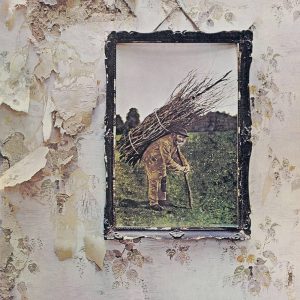
Led Zeppelin’s fourth record is commonly known as “Led Zeppelin IV” or “The Fourth Album.” The band never gave the album an official title, instead opting for four symbols chosen by each member of the band, the first one spells out Zoso, another is a circle with a feather in the middle, the next is 3 circles creating what looks like a triple venn diagram and the last is the letter Z combined with a circle. The record blends folk and rock elements beautifully, particularly within the band’s eight-minute masterpiece “Stairway to Heaven.” The song starts off with a strong folk feel with the use of every third grader’s favorite instrument, the recorder, before slowly morphing into a more rock-and-roll sounding song with drums supplied by John Bonham and clean electric guitar provided by guitarist Jimmy Page. The song marvelously concludes with a solo from Page and one last line from vocalist Robert Plant: “And she’s buying a stairway to heaven.” This album is undoubtedly Led Zeppelin’s most acclaimed and ambitious record without a single dull moment.
“Ok Computer” by Radiohead
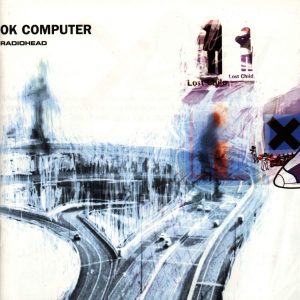
Released in May of 1997, “Ok Computer” arrived at a weird time in the history of rock music. It seemed that the majority of the bands that ruled the ‘80s and early ‘90s were starting to struggle creatively. Rock music largely sounded boring and grew extremely repetitive, lacking the innovation listeners wanted. Radiohead, however, was not an example of this phenomenon. The band did not conform to traditional rock norms and even used computer software to create sounds that are reminiscent of beeps you’d probably hear in a cheesy ‘80s spaceship or alien movie. These sounds are most notable on “Subterranean Homesick Blues.” The band also utilized “Fred,” an artificial robot voice that was used for vocals on “Fitter Happier,” one of the record’s stranger cuts. The standout track on “Ok Computer” is “Paranoid Android,” which has been compared to Queen’s “Bohemian Rhapsody” because of its unorthodox song structure. The track is split up into four sections with varying keys and tempo changes throughout. The album is spectacularly creative and pushes the boundaries of rock, making it essential for diving into the more experimental end of rock.
“The Dark Side of the Moon” by Pink Floyd
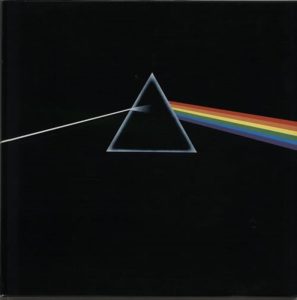
Released in March of 1973, Pink Floyd’s “The Dark Side of the Moon” is prog rock/psychedelic rock to the max. The album is like a drug, feeling almost euphoric–like floating through abstract planets and galaxies. The more you listen to “Dark Side of the Moon,” the less you can make sense of it. The standout track on the album, “Time,” contains captivating lyrics written by bassist Roger Waters and entrancing composition credited to the whole band. The song dives into the idea of wasting away time and waiting for someone or something to show you the way. The iconic lyrics “one day you find ten years have got behind you, no one told you when to run, you missed the starting gun,” works to launch the listener into David Gilmour’s incredible electric guitar solo. Headphones, dim lights and complete attention are required for this highly psychedelic and experimental journey.
“In Utero” by Nirvana

In Fall of 1993, Nirvana’s third and final album “In Utero” debuted. If you have a problem with loud, rough, heavy, emotional and at times extremely explicit sounds and lyrics, you might want to skip this one. This record came at a time of unrest and conflict within the band, and the sonics of the album perfectly reflect the members’ state of mind. Kurt Cobain’s heroin addiction gripped him tightly which in turn affected his relationship with bandmates Dave Grohl and Krist Novoselic, as well as Cobain’s wife, Courtney Love, and daughter Francis Bean Cobain. Because of Cobain’s death less than a year later, the album has carried a harsh, grim feeling. “Heart Shaped Box,” featuring plenty of exhausting vocals and loud, heavily distorted guitar that makes Nirvana’s signature sound, encapsulates this grim aura. If you’re a risk taker and none of the aforementioned warnings scare you away, you’ll love this album.
“Abbey Road” by The Beatles
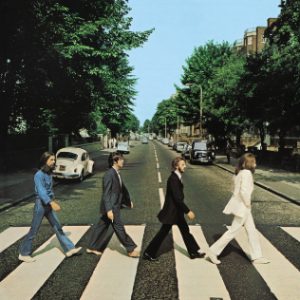
Released in September of 1969, The Beatles’s “Abbey Road” just had to be on this list. Even if you haven’t listened to the album, you have most definitely heard “Come Together” or “Here Comes the Sun” in your local record store or favorite childhood movie. The record was the last that the band recorded together as trouble with outside projects and increased conflict while collaborating had driven a wedge between the bandmates. It’s clear they poured all they had into this album as each track offers something different than the rest. “Abbey Road” features the Abbey Road Medley which is composed of nine songs that tend to stay around one to two minutes with a few exceptions. Each track is expertly written and flows effortlessly into the next. The final song, titled “The End,” features an electric drum solo by drummer Ringo Starr, as well as guitar solos from George Harrison, Paul McCartney and John Lennon. After they finish their parts, one last line is read by McCartney, saying “and in the end, the love you take, is equal to the love you make.” Not only ending the album, but ending the Beatles’ seven-year recording career, this line serves as the cherry on top to undoubtedly the most legendary group in the history of rock music.

